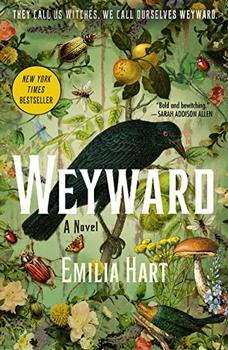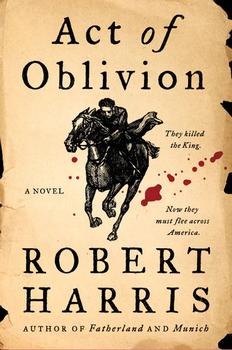Summary | Excerpt | Reading Guide | Reviews | Beyond the book | Read-Alikes | Genres & Themes | Author Bio

A Novel
by James MorrowJennet Stearne's father hangs witches for a living in Restoration England. But when this precocious child witnesses the horrifying death of her beloved Aunt Isobel, unjustly executed as a sorceress, she makes it her life's mission to bring down the Parliamentary Witchcraft Act.
From a writer who has been lauded as "an original -- stylistically ingenious, savagely funny, always unpredictable" (Philadelphia Inquirer) and "unerring" (San Diego Union-Tribune), who has been compared to Mark Twain, Kurt Vonnegut, and John Updike, a writer whose pen has given us a devastating lampoon of the nuclear-arms race and an audacious answer to the outrageous question "What if God had a daughter?" -- from this writer, the critically acclaimed James Morrow, comes a novel of history, adventure, science, sex, satire, absurdity, and philosophy.
Jennet Stearne's father hangs witches for a living in Restoration England. But when this precocious child witnesses the horrifying death of her beloved Aunt Isobel, unjustly executed as a sorceress, she makes it her life's mission to bring down the Parliamentary Witchcraft Act. A self-educated "natural philosopher," Jennet is inspired in her quest by a single sentence in a cryptic letter from Isaac Newton: It so happens that in the Investigations leading first to my Conjectures concerning Light and later to my System of the World, I fell upon a pretty Proof that Wicked Spirits enjoy no essential Existence. Armed with nothing but the power of reason and her memory of Isobel's love, Jennet cannot rest until she has put the last witchfinder out of business.
Abrim with picaresque adventures -- escapades that carry Jennet from King William's Britain to the fledgling American Colonies to an uncharted Caribbean island -- our heroine's search for justice entangles her variously in the machinations of the Salem Witch Court, the customs of her Algonquin Indian captors, the designs of a West Indies pirate band, and the bedsheets of her brilliant lover, the young Ben Franklin. Finally, in a reckless and courageous ploy, Jennet arranges to go on trial herself for sorcery, the only way she can defeat the witchfinders now and forever. Rich in detail, rollicking in style, and endlessly engaging, The Last Witchfinder is a tour de force of historical fiction.
According to his publisher, Morrow's latest book took nine years to write - set in the 17th-century, it's a richly detailed, cerebral tale narrated by Isaac Newton's Principia Mathematica (more about this in the sidebar). This is a book that you're likely to either love or hate. According to one of the book blurbs, written by Peter Straub (author of Ghost Story and Shadowland) fans of Neal Stephenson, John Barth and Thomas Pynchon will enjoy this, another reviewer compares Morrow to John Barth, and, in the past, he has been compared to writers such as Kurt Vonnegut and John Updike...continued
Full Review
 (525 words)
(525 words)
(Reviewed by BookBrowse Review Team).
James Morrow describes himself as a 'scientific humanist'. His earlier works tend to question religious viewpoints, from organized religions all the way through to atheism. For example, in the first volume of his Godhead Trilogy, written in the 1990s, the 2-mile long corpse of God is discovered floating in the ocean and the Vatican dispatches a supertanker to tow the corpse to a tomb in the Arctic, meanwhile a group of atheist extremists plan on destroying the body, as it proves they were wrong. In the second volume, God's body is now part of a religious theme ...

If you liked The Last Witchfinder, try these:

by Emilia Hart
Published 2024
Weaving together the stories of three extraordinary women across five centuries, Emilia Hart's Weyward is an enthralling novel of female resilience and the transformative power of the natural world.

by Robert Harris
Published 2023
From the bestselling author of Fatherland, The Ghostwriter, Munich, and Conclave comes this spellbinding historical novel that brilliantly imagines one of the greatest manhunts in history: the search for two Englishmen involved in the killing of King Charles I and the implacable foe on their trail - an epic journey into the wilds of seventeenth-...